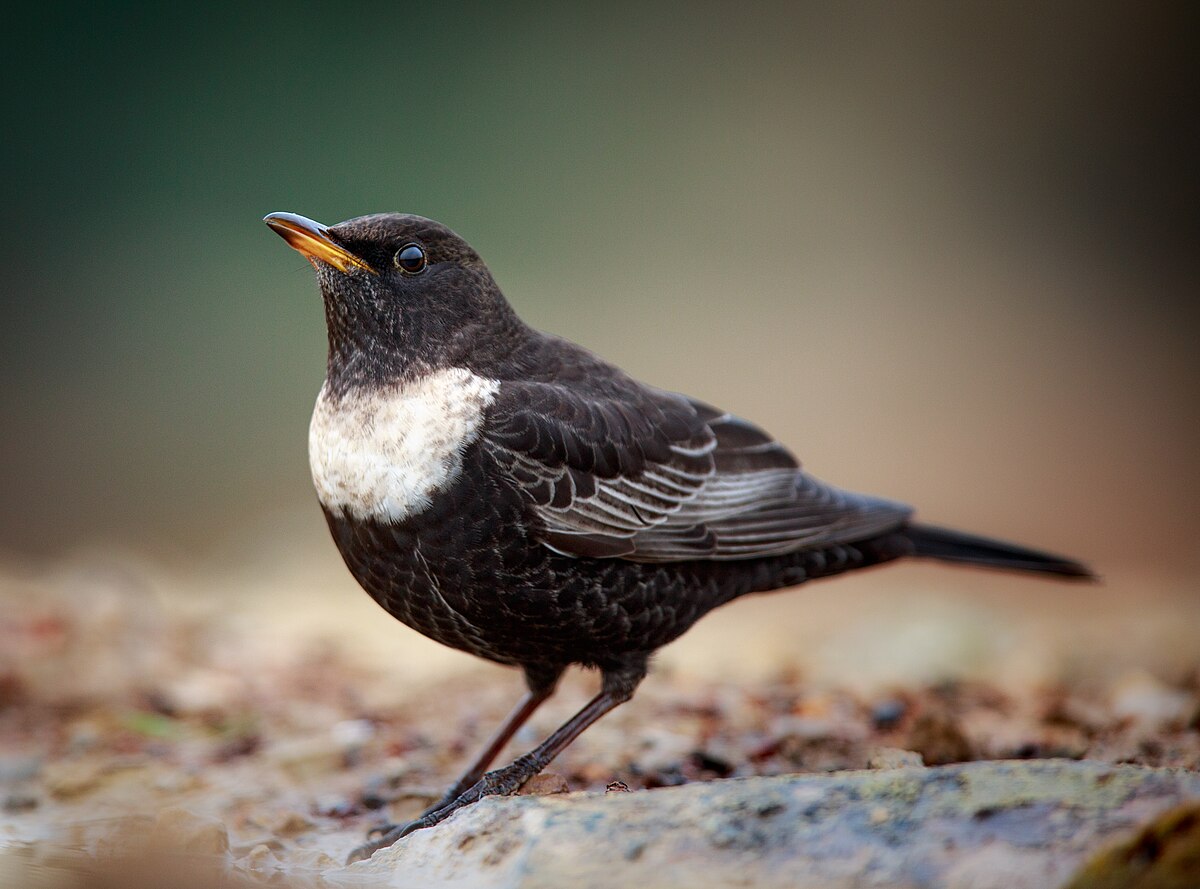cross-posted from: https://lemmygrad.ml/post/5028851
The ring ouzel (Turdus torquatus) is a mainly European member of the thrush family Turdidae. It is a medium-sized thrush, 23–24 centimetres (9.1–9.4 in) in length and weighing 90–138 grams (3.2–4.9 oz). The male is predominantly black with a conspicuous white crescent across its breast. Females are browner and duller than males, and young birds may lack the pale chest markings altogether.
The ring ouzel has an extensive range, estimated at 9.17 million square kilometres (3.54 million sq mi), and a large population, estimated at 600,000–2 million individuals in Europe (which comprises 95% of the breeding range). The Ring Ouzel is mostly an upland bird, where it breeds in steep sided-valleys, crags and gullies, from near sea level in the far north of Scotland up to 1,200m in the Cairngorms.
The ring ouzel is territorial and normally seen alone or in pairs, although loose flocks may form on migration. When not breeding, several birds may be loosely associated in good feeding areas, such as a fruiting tree, often with other thrushes such as song thrushes or redwings. Ring ouzels are solitary nesters with nests being around 200m apart. Breeding begins in mid-April in the UK, the nests are a bulky cup of dried grass, stems, and mosses which are held together with dried mud and built close to the ground in upland areas.
The ring ouzel is omnivorous, eating invertebrates, particularly insects and earthworms, some small vertebrates, and a wide range of fruit. Most animal prey is caught on the ground. During spring migration and the breeding season, invertebrates dominate the adult's diet and are also fed to the chicks. Predators of the ring ouzel include the tawny owl, long-eared owl, common buzzard, common kestrel and Eurasian sparrowhawk, least weasel and stoat. Most deaths are of young juveniles, and birds hatched early in the season are more likely to survive than later broods.
The most common NFC, a raucous chrrk-chik-chik-chik, is a call that Ring Ouzels also use commonly by day on migration and in flight. Every so often they combine this call with another from their repertoire, for example, the series chrrk-chik-chik-chik ends with a deep and knocking tok. Here is a link so you can listen to this bird too.
